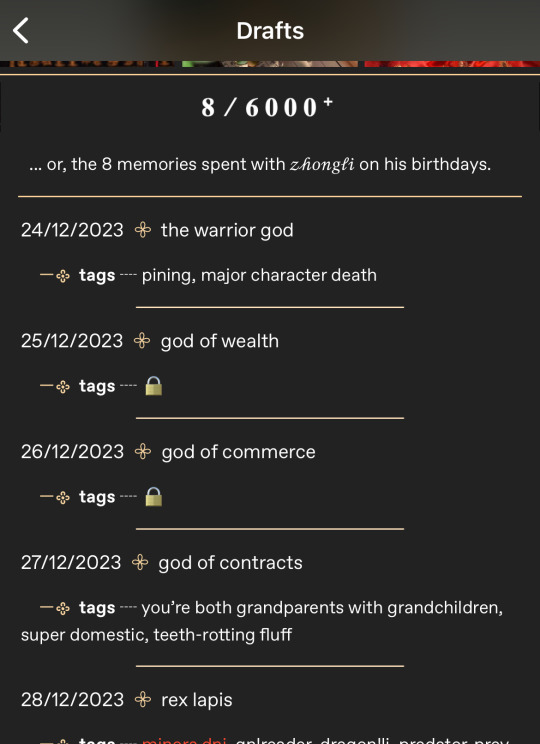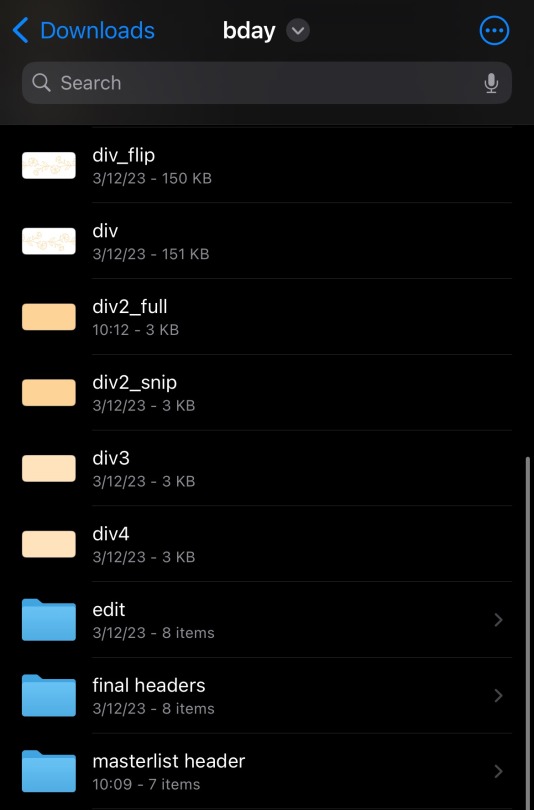#disclaimer: might not be the final product i'm still in the process of planning & writing them all
Text

oh sweetie (/derogatory), my utmost condolences, because, well


i would suggest you to block me completely because you might stumble across my *squints* mid - heh, young people these days with their funny slangs - writing when it's time. there's only so much i can do since you're hiding behind the anonymity feature like an incorporeal caitiff of a helminth </3
#rin answers#i considered not posting any of the asks altogether but#this specific one gave me a chance to give peeps a lil sneak peek so i took it#disclaimer: might not be the final product i'm still in the process of planning & writing them all#but yeah. more mid fics incoming i guess lmao#too bad you cant stop me nonnie : ) : ) : )
49 notes
·
View notes
Note
Hiya Hidden, I hope your day is going well! I want to improve my writing, but I don't have a beta and I'm not ready to join a group, right now I'm a bit to thin-skinned for that. I picked up Stephen King's book and that's been helpful, are there any other resources you'd recommend?
Hey there, glad to hear you're exploring your options in a way that works for you!
For other readers, Stephen King's On Writing is the one writing book I recommend because it teaches editing quickly and effectively. Your local library almost certainly has it, if you're interested.
And speaking of local libraries, I've read pretty much all of the writing books mine carries. About 70% of them are mostly cheerleading/support books, without much in the way of practical advice or exercises. Of these, I recommend Anne Lamott's Bird by Bird, as it's masterfully written.
I always recommend reading the best of what's out there, too. Obviously this is highly subjective, but if you are interested in my picks: here. Read diversely, seek out view points that are new to you (I love biographies for this reason).
I recommend Googling around for what's out there for free or low cost right now, in terms of lessons. Your fave authors might have a podcast or a lecture series for a fee. These days, people tend to use socials to promote themselves, so you might be able to learn direct from your favorite horse's mouth, so to speak! There are also online class series for a fee, but obviously you'll want to google those for reviews first.
I'm going to quickly toss some practical things that work for me beneath the cut, but disclaimers apply (I'm a hobbyist, what works for me might not work for you, etc).
1.) Drafting is one small part of writing
I get the sense that, when folks say they are writing, they are referring to drafting- getting words down on paper. Drafting is a small part of creating a finished piece. There's also planning, researching, editing, and inevitably scrapping/rearranging/rewriting/retooling/etc. These days, I personally spend about a month out of the year making a 50,000 word draft in Nanowrimo, about a month planning and researching before that, and the rest of the year editing/rearranging/retooling/discovering what my story actually is. Of course, I do end up drafting new scenes and filling gaps in there, too.
From listening to other creatives and watching how they track progress (mostly word counts), I get the sense that editing and refining are often overlooked in favor of further production. Basically, quantity over quality.
I don't know what the correct percentages are, and I doubt they exist. It's totally possible to obsess over every word to the point where you don't draft anymore, which is equally a problem. Just remember that there's so much more to the process than drafting, and it's normal/common for your draft to be taken apart and reassembled before completion.
Which leads me to...
2.) First draft are bad
Don't sweat quality in draft one. Draft one is always trash compared to the final product. Perfection anxiety can remove the joy of writing and paralyze writers. Worry about polish when you edit, but you can't edit something that doesn't exist. Bang out that bad first draft and nurture it from there.
I have a little essay on combating writing paralysis with successive drafts here. My advice always changes over time, lol, so who knows if I'd still agree, but it could be worth giving a read with a critical eye.
3.) Make working on your writing project a habit
In my opinion, the best thing you can do as a creative is make creating a daily habit. "The muse" and "inspiration" are fickle. Putting your butt in the chair and making stuff because it's make stuff o'clock is reliable. My advice is to show up for a set amount of time every day (start with as little as 15 minutes) and make stuff, with no care for quantity or quality. Just show up and do the thing and call it a win. It takes time, but once you establish the habit, you will become a creative force. People I think tend to underestimate how far you can go taking one small step a day. The time will pass regardless, so why not break down the thing you want to do into tiny, daily chunks?
I have an essay loosely about this here, although it's from the perspective of self care through daily creative habits.
4.) Leave distractions behind when you create
Turn off the internet on your computer and leave your phone in another room if it is safe to do so. If you sit in a room with nothing else to do but write, shockingly, you tend to write much more than if you have Tumblr within arm's reach.
Obviously some distractions can't be helped, and my goal is never to shame anyone for those. But try reducing those you can control. For me, it makes a huge difference. I adore distraction free writing tools for this reason! The most affordable I know is an AlphaSmart neo2 used (aim for about $40 total, ignore the price gouge ones, make sure it has the printer cord to connect to your computer, and you will need 3 AA batteries). There are modern alternatives, but they are pricey, and frankly I hate the company that makes them (yes, I'm talking about Astrohaus).
5.) Strive for completion
It's common in both fanworks and original projects for new writers to have 5+ fics or novels with a few chapters on their hard drive, effectively generating a graveyard of stories that never progressed past the opening portion. All this teaches us is how to start a piece.
I'm not suggesting that anyone torture themselves over a piece they don't want to work on anymore, but the only way to learn how to craft narratives is to... Well, craft complete narratives.
My advice is to make sure you know how you want your story to begin and end, and some idea of the dreaded middle bits, before you put too much effort into drafting. It's so easy to get excited and launch yourself into a frenzy, only to hit a wall and drop things completely when that initial inspiration fades.
But as mentioned in 3, inspiration is fickle. Habit is not!
Those are my favorite bits of writing advice, but I do have more! As I mentioned above, I tend to change my mind over time, but that leaves room for you to be critical about what I say and take and leave things as you choose.
-A video of my editing process
-Combating writing paralysis with successive drafts
-Dishing with an artist
-Tips for Fanfic Authors
-More Tips for Fanfic Authors
-Tips for Winning Nanowrimo
-Even more tips on writing fics
-Digimon Adventure/02 references
I hope something in this mess is helpful, lol!
Also, you mention being thin-skinned. My dear (I know using that may sound condescending, but I mean it with kindness and affection, because I have been there too), that is so common, especially for very young people. I was thin-skinned myself and only began... shedding? Toughening??? That skin around age 30. I am absolutely nowhere near being 100% tough yet, lol!
But I do want to say that moving in that direction is so, so wonderful. For me, personally, being thin-skinned was part of my upbringing. I was raised to assume everyone was dangerous, so of course I had a tendency to take everything personally and in the worst way possible. With time, therapy, and good 'ol 'no longer having the energy to get up in arms about everything,' I began to see that being thin-skinned is actively damaging to me. Like, it can hurt the people you snap at who were genuinely trying to help or joke around, yeah, but it always hurts me.
Being thin-skinned stands between people and the help they might need. It causes people to reject advice that might help them grow. It can make other people afraid to be real with someone, because that person might respond so negatively to an honest attempt to help or connect.
Literally everyone has these feelings sometimes, so I'm not saying this to attack or condescend. In fact, it's mature that you recognize this aspect of yourself. But I might gently suggest that working on this could be as helpful to your writing as the best writing book in the world, whatever that book may be.
I'm no therapist, but a cognitive behavioral therapy technique helps me a lot with this. If I feel a strong spike of emotion, I stop to question it before acting on it. Why did I feel so upset when Bob said x? According to my therapist, events don't cause emotions (such as Bob's possibly problematic comment). What causes emotions is how our belief system processes the event, which is why different people respond to the same event differently. Often, in the process of translating events to feelings, our belief systems sort of... Distort the message, or make it far more personal than the speaker intended.
Practicing this skill is easy online- just walk away from the computer for a bit. In person... Not so much. It's a difficult, active, not-fun process. I personally think it's worthwhile, even though I have a long way to go, myself.
But do also remember that some advice is just... bad. Some of my advice might be bad, or simply wrong for you. Never turn off your critical thinking!
I'm rooting for you, my dear! Please take care and keep writing and growing, you are amazing!
0 notes
Note
Hello! I'm writing a Harry Potter fic (if there is no answer to my question, I can always say it's because of magic) where one of the characters is killed by potion experient gone wrong. What kind of chemicals (and the following question which is for a different script blog: where in the nature can I find them?) are needed for an explosion big enough to throw off a human too close to it?
A disclaimer up front – this post is going to deal with the topic of an individual being killed in an explosion-type accident. I’m definitely not going to show you any pictures of that kind of injury, and I won’t even be giving detailed descriptions (that’s @ScriptMedic’s gig, and the topic has already been covered), but I wanted to give everyone a fair warning before proceeding.
This is quite an interesting ask because the scenario you’re aiming for is actually fairly difficult to produce; you need enough oomph™ to get a person in motion, but it needs to be a controlled and directed oomph™ because I’m assuming that after the character is thrown you’d like there to be a body, a building, and potentially even some witnesses left to tell the tale. First we should take a moment to discuss what an explosion is, and the different sorts of explosions you can get from chemical reactions; then we’ll move on to how they might affect the surroundings and an unfortunate individual who happened to be nearby. Finally, I may be able to offer some advice as to how to throw your character and still have them be recognizable at the end of the scene, though it’s going to take some careful planning to do it in a realistic fashion.
Just so we’re all on the same page, an explosion is a very fast release of stored potential energy, with most of it being released as heat, light, sound, and pressure. Chemical explosives are usually compounds that decompose to release a lot of heat (energy from chemical bonds) and large volumes of gaseous products like nitrogen; the rate of this decomposition plays a large part in how useful a material is as an explosive. So-called ‘low explosive’ compounds decompose by deflagration, meaning that the reaction travels through the material slower than the speed of sound; low explosives include things like gunpowder, pyrotechnics, propellants (propane/gasoline), and many other mixtures of fuels and oxidizers. If the reaction propagates faster than the speed of sound, you have a ‘high explosive’ material that decomposes by detonation. As an example, let’s take a look at something called detonation cord (det. cord), a thin flexible line filled with the high explosive pentaerythritol tetranitrate (PETN). Below is a setup where a bullet is fired from right to left, activating an electronic trigger connected to the end of 16 feet of det. cord. (FullMag’s full video can also be found here.)

PETN detonates at 24-28,000 ft/s, so in the time it takes the bullet to travel the remaining 2.25 feet to the target (moving around 2800 ft/s), the reaction front of the explosive travels 16 feet to catch up with it. If you look closely, you can also see the blast wave from the newly formed gases expanding outward after the explosion – look for the ripple in the air at the top of the frame, or for the wave of dust knocked off the right-hand cinder block as the concussive force of the shock wave moves past it. This high-pressure, high-velocity wave of compressed gas is what causes most of the damage associated with an explosion, but unfortunately we’re going to run into a slight problem if we try to use an explosive to throw a person – humans are relatively small and squishy, which makes them extremely resilient to pressure waves and able to survive much more than you might expect. Here’s one more explosion gif to demonstrate how this works (and this time it’s a splodey-melon):

There are a few things to take note of here, besides the complete lack of eye protection – if the chunk of watermelon rind that struck his head was two inches lower down, that eye may very well have been lost. First and foremost, the individual pictured was completely unharmed by the pressure wave, and the melon shrapnel luckily only caused a welt; you can see the full clip here. However, if you watch the edge of the table you can see it flex down with the pressure of the explosion, and if you look really carefully you can see chunks of debris knocked off the bottom side of the table at very high speed (through a process called spallation). When a pressure wave encounters a solid object, it deposits some of its momentum as kinetic energy and is then reflected off the surface; that energy must either be absorbed or dissipated by the solid, and if the solid is rigid it will crack and crumble. If the solid is squishy and flexible (like a person), it can deform slightly to both absorb and dissipate energy without shattering and falling apart. This table compares damage to structures and humans at various peak blast overpressures in the frame of mining explosions; at peak overpressures of 5 psi, only 1% of humans exposed will even rupture an eardrum, but at this pressure most buildings will collapse. Real-world mining explosions that reach 5 psi overpressures do in fact cause many injuries and fatalities, but it isn’t the pressure that kills – it’s the shrapnel and the blast wind that accompanies large-scale explosions. The other factor protecting a person is the fact that humans have a relatively small surface area when compared to things like tables or walls or buildings, so only a fraction of the explosive energy from a pressure wave can even be absorbed by a person to begin with. In order for enough energy to be transferred to a person to throw them across a room, the explosion needs to be massive.
So what does this mean for your character and their exploding potion? If you want the actual explosion to throw them, you’re going to need something huge; it’s going to take out the room, probably the floors above and below it, and maybe even the entire building/wing of the dungeon. An explosion of this scale involves forces far greater than those holding the body together, so if the character is near the center of it then there isn’t going to be much left at the end; to get this effect from something the size of a potion would also require military-grade high explosives, and they’re not the sort of thing you make accidentally.
There is perhaps another way to achieve the same effect, but with a much smaller explosion – it’s even a plausible accident that could occur in the real world. Consider that fact that the amount of energy in a small firework, which can turn a watermelon into a vapormelon without injuring a person sitting a few feet away, is more than an order of magnitude larger than the energy required to fire a bullet from a gun. The difference here is how the explosion is contained; with the melon it expands in a spherical wavefront and can bounce around and reflect off of things, but with the bullet the explosion is funneled down the barrel, propelling a single piece of shrapnel to a very high velocity. If you can contain the explosive energy of your potion and channel it into a heavy, solid object, it could easily strike your character and carry them across a room, killing them in the process through blunt force trauma.
Perhaps your character was preparing something in an iron cauldron over a small open fire, and instead of grabbing that vial of Horklump juice they accidentally grabbed the hydrochloric acid. Iron (and a number of other metals) will react with hydrochloric acid to produce iron chloride and hydrogen gas; the reaction isn’t particularly fast or violent, and the gentle bubbling and yellow color of the solution might not even be noticed in the bottom of a black cauldron. If your character were to put a heavy iron lid on top and let it simmer for half an hour, quite a lot of very flammable gas would build up, but as long as the lid remained in place it wouldn’t be able to come into contact with an ignition source. Your character returns and grabs the next ingredient, but as they start to lift the lid off, hydrogen can escape into the room and oxygen from the air can diffuse into the cauldron. The escaped hydrogen is ignited by the small open fire, and it quickly flashes back towards the cauldron, snaking down under the lid where it meets an ideal mixture of hydrogen and oxygen. This results in a powerful explosion with almost all of the force being directed straight up into the iron lid; it takes off towards the ceiling and strikes your character’s head or torso on the way, causing them to fly back and collapse in a heap.
This is just one way to spin this unfortunate tale, but it would give you a plausible potion accident with a readily available material, and it could cause an explosion that (indirectly) kills your character and sends them flying across the room. You could even have any number of people standing around with ringing ears who are otherwise uninjured, and besides that dent in the ceiling you haven’t done much structural damage.
Of course it goes without saying that you are always free to exclaim “MAGIC” at any point to either augment or supplant chemistry and physics, but going that route is entirely beyond the purview of my expertise.
~J
Disclaimer
55 notes
·
View notes